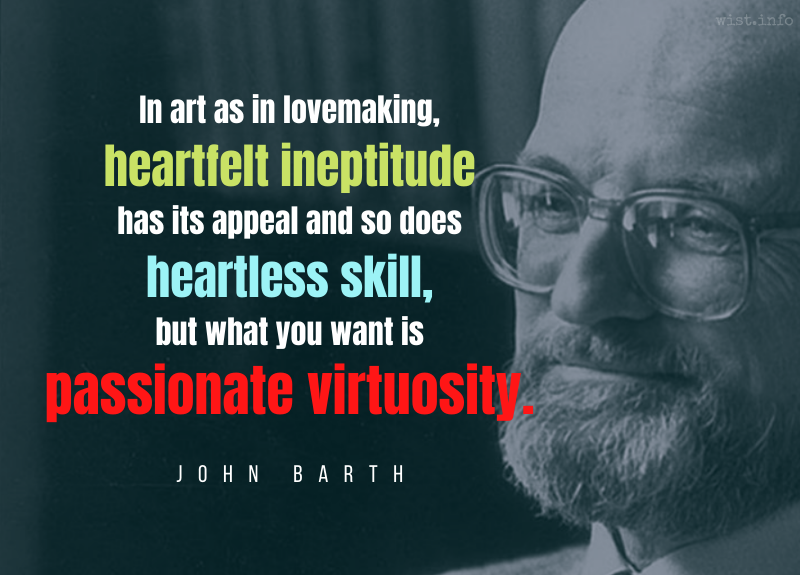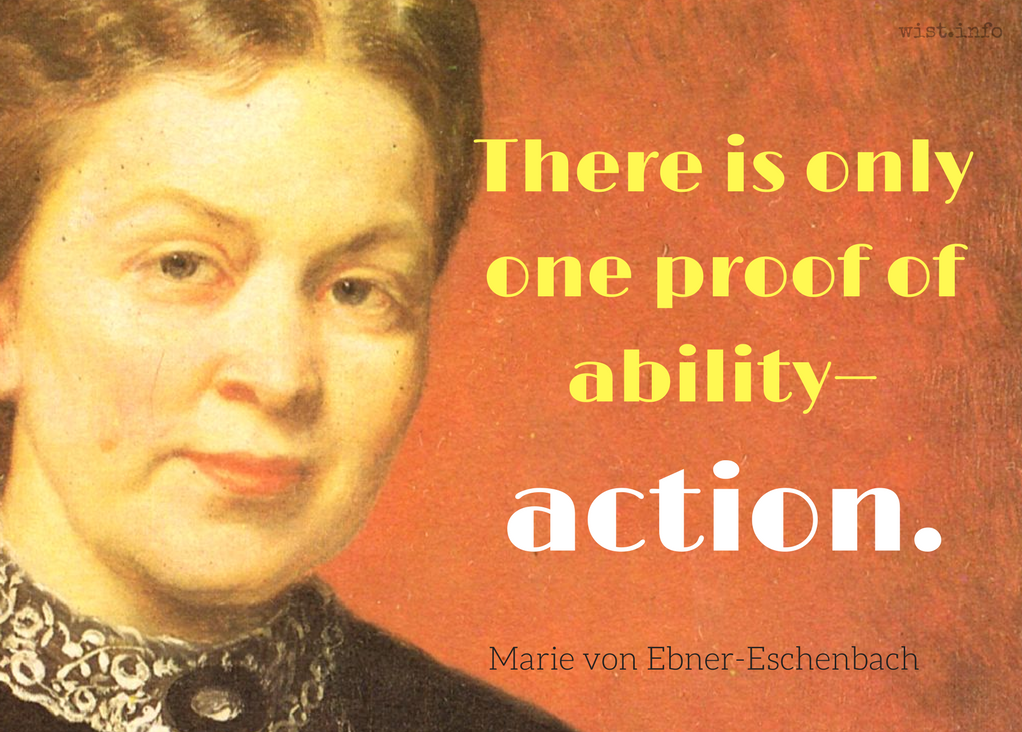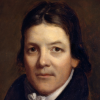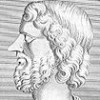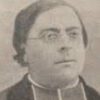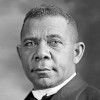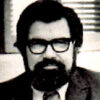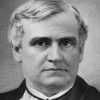Idleness is a necessity for the mind, as much as work. Talent is ruined by writing too much, and rusted by not writing at all.
[L’oisiveté est nécessaire aux esprits, aussi bien que le travail. On se ruine l’esprit à trop écrire; on se rouille à n’écrire pas.]Joseph Joubert (1754-1824) French moralist, philosopher, essayist, poet
Pensées [Thoughts], ch. 23 “Des Qualités de l’Écrivain [Of the Qualities of Writers],” ¶ 53 (1805) (1850 ed.) [tr. Lyttelton (1899), ch. 22, ¶ 20]
(Source)
(Source (French)). Alternate translations:The mind must rest as well as work. To write too much ruins it; to leave off writing rusts it.
[tr. Attwell (1896), ¶ 336]One ruins the mind with too much writing. One rusts it by not writing at all.
[tr. Auster (1983), 1805 entry]
Quotations about:
ability
Note not all quotations have been tagged, so Search may find additional quotes on this topic.
A man compensates for the lack of a talent by despising it. He removes the obstacle he finds between himself and merit, and so finds himself on a plane with those whose work he envies.
[Un homme à qui il manque un talent se dédommage en le méprisant: il ôte cet obstacle qu’il rencontroit entre le mérite et lui; et, par là, se trouve au niveau de celui dont il redoute les travaux.]Charles-Lewis de Secondat, Baron de Montesquieu (1689-1755) French political philosopher
Persian Letters [Lettres Persanes], Letter 145, Usbek to *** (1721) [tr. Healy (1964)]
(Source)
(Source (French)). Alternate translations:A man to whom a talent is wanting, makes himself amends by despising it: he removes that obstacle which was between merit and him, and thereby finds himself on a level with the man whose pen he dreads.
[tr. Ozell (1760 ed.), # 73]When a man is destitute of any particular talent, he indemnifies himself, by expressing his contempt for it; he removes that obstacle which stood between merit and him, and by that means, raises himself to a level with those whom he before feared as rivals.
[tr. Floyd (1762)]When a man lacks a particular talent, he indemnifies himself by despising it: he removes the impediment between him and merit; and in that way finds himself on a level with those of whose works he formerly stood in awe.
[tr. Davidson (1891)]A man who lacks a certain talent compensates himself by despising it: he removes the obstacle placed between him and merit, and thereby finds himself on an equality with the person whose labors he dreads.
[tr. Betts (1897)]A man who lacks a certain talent will compensate himself by despising it; he eliminates the obstacle which blocks his path to excellence, and, as a consequence, sees himself as the equal of the rival whose work he fears.
[tr. Mauldon (2008), # 156]
Life is like a ten-speed bicycle. Most of us have gears that we never use.
Charles Schulz (1922-2000) American cartoonist
Peanuts [Linus] (1981-05-29)
(Source)
The phrase was also used as the title in a Peanuts collection of Linus' wisdom, Life Is Like A Ten-Speed Bicycle (1997), which included this strip.
The noble-minded worry about their lack of ability, not about people’s failure to recognize their ability.
[君子病無能焉、不病人之不己知也]
Confucius (c. 551- c. 479 BC) Chinese philosopher, sage, politician [孔夫子 (Kǒng Fūzǐ, K'ung Fu-tzu, K'ung Fu Tse), 孔子 (Kǒngzǐ, Chungni), 孔丘 (Kǒng Qiū, K'ung Ch'iu)]
The Analects [論語, 论语, Lúnyǔ], Book 15, verse 19 (15.19) (6th C. BC – AD 3rd C.) [tr. Hinton (1998)]
(Source)
(Source (Chinese)). See also 1.16, 4.14, 14.30. Legge and other early translators numbered this, as shown below, 15.18. Alternate translations:The superior man is distressed by his want of ability. He is not distressed by men's not knowing him.
[tr. Legge (1861), 15.18]The trouble of the superior man will be his own want of ability: it will be no trouble to him that others do not know him.
[tr. Jennings (1895), 15.18]A wise and good man should be distressed that he has no ability ; he should never be distressed that men do not take notice of him.
[tr. Ku Hung-Ming (1898), 15.18]The noble man is pained over his own incompetency, he is not pained that others ignore him.
[tr. Soothill (1910), 15.18]The proper man is irritated by his incapacities, not irritated by other people not recognizing him.
[tr. Pound (1933), 15.18]A gentleman is distressed by his own lack of capacity; he is never distressed at the failure of others to recognize his merits.
[tr. Waley (1938), 15.18]The perfect gentleman complains about his own inabilities; not about people’s ignorance of himself.
[tr. Ware (1950)]The gentleman is troubled by his own lack of ability, not by the failure of others to appreciate him.
[tr. Lau (1979)]The gentleman is pained at the lack of ability within himself; he is not pained at the fact that others do not appreciate him.
[tr. Dawson (1993)]A gentleman resents his incompetence; he does not resent his obscurity.
[tr. Leys (1997)]The gentleman worries about his incapability; he does not worry about men not knowing him.
[tr. Huang (1997)]A gentleman worries about that he does not have the ability, does not worry about that others do not understand him.
[tr. Cai/Yu (1998), #403]Exemplary persons (junzi) are distressed by their own lack of ability, not by the failure of others to acknowledge them.
[tr. Ames/Rosemont (1998)]The gentleman takes it as a fault if he is incapable of something; he does not take it as a fault if others do not know him.
[tr. Brooks/Brooks (1998)]The gentleman is distressed by his own inability, rather than the failure of others to recognize him.
[tr. Slingerland (2003)]The gentleman is troubled by his own lack of ability. He is not troubled by the fact that others do not understand him.
[tr. Watson (2007)]The gentleman is worried about his own lack of ability and not about the fact that others do not appreciate him.
[tr. Chin (2014)]A Jun Zi is disappointed about his own incompetency. He is not distressed that he is not known by others.
[tr. Li (2020)]
It is our choices, Harry, that show what we truly are, far more than our abilities.
Joanne "Jo" Rowling (b. 1965) British novelist [writes as J. K. Rowling and Robert Galbraith]
Harry Potter and the Chamber of Secrets [Dumbledore] (1998)
(Source)
It might be argued that a man who employs this kind of skill with words for immoral purposes can do great harm, but the same goes for everything good except for virtue, and it goes above all for the most valuable things, such as strength, health, and generalship. After all, moral use of these things can do the greatest good, and immoral use the greatest harm.
[εἰ δ᾽ ὅτι μεγάλα βλάψειεν ἂν ὁ χρώμενος ἀδίκως τῇ τοιαύτῃ δυνάμει τῶν λόγων, τοῦτό γε κοινόν ἐστι κατὰ πάντων τῶν ἀγαθῶν πλὴν ἀρετῆς, καὶ μάλιστα κατὰ τῶν χρησιμωτάτων, οἷον ἰσχύος ὑγιείας πλούτου στρατηγίας: τούτοις γὰρ ἄν τις ὠφελήσειεν τὰ μέγιστα χρώμενος δικαίως καὶ βλάψειεν ἀδίκως.]
Aristotle (384-322 BC) Greek philosopher
Rhetoric [Ῥητορική; Ars Rhetorica], Book 1, ch. 1, sec. 13 (1.1.13) / 1355b (350 BC) [tr. Waterfield (2018)]
(Source)
(Source (Greek)). Alternate translations:But if it be urged that a man, using such a power of words for an unjust purpose, would do much harm, this is common to all the goods, with the exception of virtue; and especially in the case of the most useful, as for instance strength, health, wealth, and command: for by the right use of these a man may do very much good, and by the wrong very much harm.
[Source (1847)]If, however, any one should object that a person, unfairly availing himself of such powers of speaking, may be, in a very high degree, injurious; this is an objection which will like in some degree against every good indiscriminately, except virtue; and with especial force against those which are most advantageous, as strength, health, wealth, and generalship. Because employing these fairly, a person may be beneficial in points of the highest importance; and by employing them unfairly may be equally injurious.
[tr. Buckley (1850)]If it is objected that the abuser of the rhetorical faculty can do great mischief, this, at any rate, applies to all good things except virtue, and especially to the most useful things, as strength, health, wealth, generalship. By the right use of these things a man may do the greatest good, and by the unjust use, the greatest mischief.
[tr. Jebb (1873)]And if it be objected that one who uses such power of speech unjustly might do great harm, that is a charge which may be made in common against all good things except virtue, and above all against the things that are most useful, as strength, health, wealth, generalship. A man can confer the greatest of benefits by a right use of these, and inflict the greatest of injuries by using them wrongly.
[tr. Roberts (1924)]If it is argued that one who makes an unfair use of such faculty of speech may do a great deal of harm, this objection applies equally to all good things except virtue, and above all to those things which are most useful, such as strength, health, wealth, generalship; for as these, rightly used, may be of the greatest benefit, so, wrongly used, they may do an equal amount of harm.
[tr. Freese (1926)]And if someone using such a capacity for argument should do great harm, this at least, is common to all good things -- except virtue -- and especially so in the case of the most useful things, such as strength, health, wealth, and generalship. For someone using these things justly would perform the greatest benefits -- and unjustly, the greatest harm.
[tr. Bartlett (2019)]
My feeling about technique in art is that it has about the same value as technique in love-making. That is to say, on the one hand, heartfelt ineptitude has its appeal and, on the other hand, so does heartless skill; but what you want is passionate virtuosity.
John Barth (b. 1930) American writer
“An Interview with John Barth,” by Alan Prince and Ian Carruthers, Prism (Spring 1968)
(Source)
The quotation from the interview (originally credited only to Prince) was also included in the inside dust cover of Barth's short story collection, Lost in the Funhouse (1968), and is sometimes cited to that book.
The longer quote was paraphrased to the form in the graphic above on the dust cover of Charles B. Harris, Passionate Virtuosity: The Fiction of John Barth (1983):In art as in lovemaking, heartfelt ineptitude has its appeal and so does heartless skill, but what you want is passionate virtuosity.
Harris later gives the full quotation inside his book.
Also used by Barth in "Dunyazadiad," Esquire (1972-07-01), reprinted in Chimera (1972):Heartfelt ineptitude has its appeal, Dunyazade; so does heartless skill. But what you want is passionate virtuosity.
Yet I think that to all living things there is a pleasure in the exercise of their energies, and that even beasts rejoice in being lithe and swift and strong. But a man at work, making something which he feels will exist because he is working at it and wills it, is exercising the energies of his mind and soul as well as of his body. Memory and imagination help him as he works. Not only his own thoughts, but the thoughts of the men of past ages guide his hands; and, as a part of the human race, he creates. If we work thus we shall be men, and our days will be happy and eventful.
William Morris (1834-1896) British textile designer, writer, socialist activist
“Useful Work versus Useless Toil,” lecture (1884)
(Source)
Printed in Signs of Change (1888).
Wings are freedom only when they are wide open in flight. On one’s back they are a heavy weight.
[Крылья — свобода, только когда раскрыты в полёте, за спиной они — тяжесть.]
Marina Tsvetaeva (1892-1941) Russian poet
Notebook 1 (1921)
(Source)
Literally "Wings -- freedom, only when opened in flight, behind their backs -- heavy."
The fox knows many things, but the hedgehog knows one big thing.
[πόλλ’ οἶδ’ ἀλώπηξ, ἐχῖνος δ’ἓν μέγα]
Archilochus (c. 680-645 BC) Greek lyric poet and mercenary [Ἀρχίλοχος, Archilochos, Arkhilokhus]
Fragment 201
(Source)
As quoted in Isaiah Berlin, The Hedgehog and the Fox (1953). The fragment is found in a group of proverbs collected by Zenobius. Alt. trans.:
- The fox knows many things; the hedgehog one great thing.
- The fox knows many tricks; the hedgehog one good one.
- The fox knows many tricks; and the hedgehog only one; but that is the best one of all.
- Fox knows many, Hedgehog one solid trick.
- Fox knows tricks and still gets caught; Hedgehog knows one but it always works. (Source)
The Abilities of Man must fall short on one side or other, like too scanty a Blanket when you are a-bed. If you pull it upon your Shoulders, you leave your Feet bare; if you thrust it down upon your Feet, your Shoulders are uncovered.
William Temple, 1st Baronet Temple (1628-1699) English statesman and essayist.
Miscellanea (1705)
(Source)
I believe that happiness consists in having a destiny in keeping with our abilities. Our desires are things of the moment, often harmful even to ourselves; but our abilities are permanent, and their demands never cease.
Germaine de Staël (1766-1817) Swiss-French writer, woman of letters, critic, salonist [Anne Louise Germaine de Staël-Holstein, Madame de Staël, Madame Necker]
Reflections on Suicide (1813)
(Source)
Ability is not something to be saved, like money, in the hope that you can draw interest on it. The interest comes from the spending. Unused ability, like unused muscles, will atrophy.
Eleanor Roosevelt (1884-1962) First Lady of the US (1933-45), politician, diplomat, activist
Tomorrow Is Now (1963)
(Source)
There is only one proof of ability — action.
[Für das Können gibt es nur einen Beweis: das Tun.]
Marie von Ebner-Eschenbach (1830-1916) Austrian writer
Aphorisms [Aphorismen], No. 91 (1880) [tr. Wister (1883)]
(Source)
(Source (German)). Alternate translation:There is only one proof of ability: doing it.
[tr. Scrase/Mieder (1994)]
He is a man of splendid abilities, but utterly corrupt. He shines and stinks like rotten mackerel by moonlight.
Would that my ability was equal to my inclination.
Abigail Adams (1744-1818) American correspondent, First Lady (1797-1801)
Letter to John Quincy Adams (16 Feb 1786)
(Source)
It is a very rare thing for a man of talent to succeed by his talent.
Joseph Roux (1834-1886) French Catholic priest
Meditations of a Parish Priest: Thoughts, Part 4, #88 (1886)
(Source)
Never make fun of someone who speaks broken English. It means they know another language.
H. Jackson "Jack" Brown, Jr. (b. 1940) American writer
Life’s Little Instruction Book, Vol. 3, #1427 (1993)
(Source)
An able man shows his Spirit by gentle words and resolute actions.
The Muse was suddenly there for Dad.
The Truth lay easy in his mind.
The Subconscious lay saying its say, untouched, and flowing off his tongue.
As we must learn to do in our writing.
As we can learn from every man or woman or child around us when, touched and moved, they tell of something they loved or hated this day, yesterday, or some other day long past. At a given moment, the fuse, after sputtering wetly, flares and the fireworks begin.
Oh, it’s limping crude hard work for many, with language in their way. But I have heard farmers tell about their very first wheat crop on their first farm after moving from another state, and if it wasn’t Robert Frost talking, it was his cousin, five times removed. I have heard locomotive engineers talk about America in the tones of Thomas Wolfe who rode our country with his style as they ride it in their steel. I have heard mothers tell of the long night with their firstborn when they were afraid that they and the baby might die. And I have heard my grandmother speak of her first ball when she was seventeen. And they were all, when their souls grew warm, poets.Ray Bradbury (1920-2012) American writer, futurist, fabulist
“How to Keep and Feed a Muse,” The Writer (1961-07)
(Source)
Reprinted in Bradbury, Zen in the Art of Writing (1990).
When I had the strength, I did not have the patience. I have the patience today and I no longer have the power.
Joseph Joubert (1754-1824) French moralist, philosopher, essayist, poet
Pensées [Thoughts], 1812 (1850 ed.) [tr. Auster (1983)]
(Source)
Not found in other collections.
The world cares very little about what a man or woman knows; it is what the man or woman is able to do that the world cares about.
Booker T. Washington (1856-1915) American educator, writer
“Mind and Matter,” Speech, Alabama State Teachers’ Association, Selma (5 Jun 1895)
Washington reused material in various speeches he gave. In an address to the African Methodist Episcopal Zion Church, Boston (30 July 1903), he phrased this: "The world cares very little what you or I know, but it does care a great deal about what you or I do."
There’s many a good tune played on an old fiddle.
Samuel Butler (1835-1902) English novelist, satirist, scholar
The Way of All Flesh, ch. 61 (1903)
Full text.
Competence, like truth, beauty and contact lenses, is in the eye of the beholder.
Lawrence J. Peter (1919-1990) American educator, management theorist
The Peter Principle (1969)
See Richard Cumberland.








